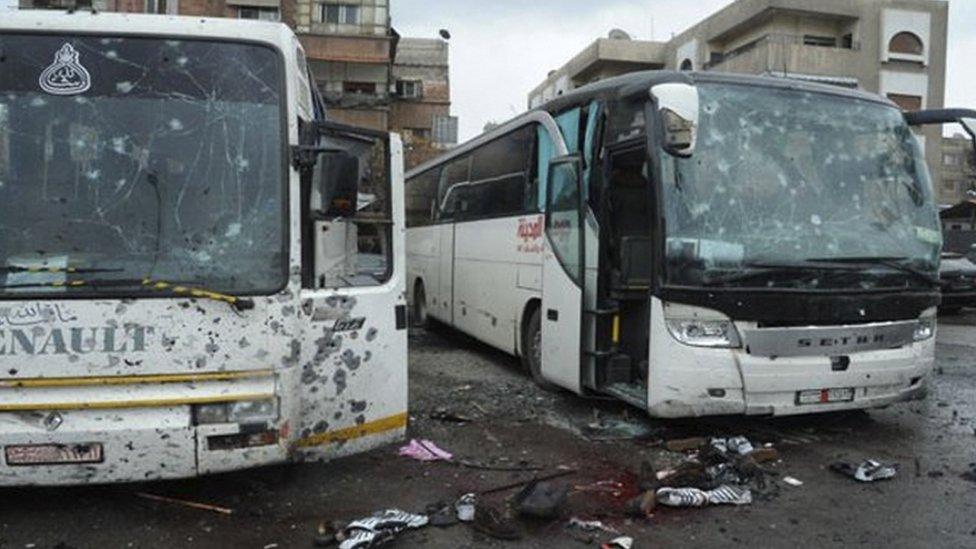Syrian Al-Qaeda affiliate claims twin bombing in Damascus
- Published
The BBC's Richard Conway reports from the site of the attack in Damascus
A Syrian jihadist group affiliated with al-Qaeda has claimed responsibility for a twin bombing on Friday in the capital Damascus that killed at least 40.
Hayat Tahrir al-Sham said the attack was "a message to Iran" over the country's support for Syrian president Bashar al Assad.
The majority of dead were Iraqi pilgrims, according to the UK-based Syrian Observatory for Human Rights.
The Observatory put the death toll at 74, but the figure was not confirmed.
The blast wounded 120, according to Iraq's government. According to the Observatory, the attack consisted of a roadside bomb detonated as a bus passed, and a suicide bombing.
It took place near the Bab al-Saghir cemetery, which houses Shia mausoleums. Sunni militants often target Shias but attacks in the capital are uncommon.
Hayat Tahrir al-Sham (Liberation of the Levant Organisation) is a new group formed from Jabhat Fateh al-Sham (previously al-Nusra Front) and four smaller factions.

Those targeted were pilgrims arriving at the site by bus
A nationwide truce in Syria, brokered by Russia, Turkey and Iran, took effect on 30 December after talks in Kazakhstan, but sporadic attacks continue.
There have been two rounds of talks, with another planned next week.
Damascus is mostly under the control of Syrian President Bashar al-Assad, but rebel groups are present in outlying districts of the city.
In January, a double suicide bombing in the Kafr Sousa district of the capital killed at least 10 people. The then-named Jabhat Fateh al-Sham said it was behind that attack.
The group is excluded from the peace talks and its mainly north-western bases have been regularly targeted by the Syrian army and its Russian allies.
So-called Islamic State is another Sunni extremist group that controls significant areas of Syria. Its Iraqi stronghold of Mosul is currently under attack from Iraqi government forces and their allies.
More than 300,000 people have been killed and 11 million others displaced since the uprising against President Assad began in March 2011.